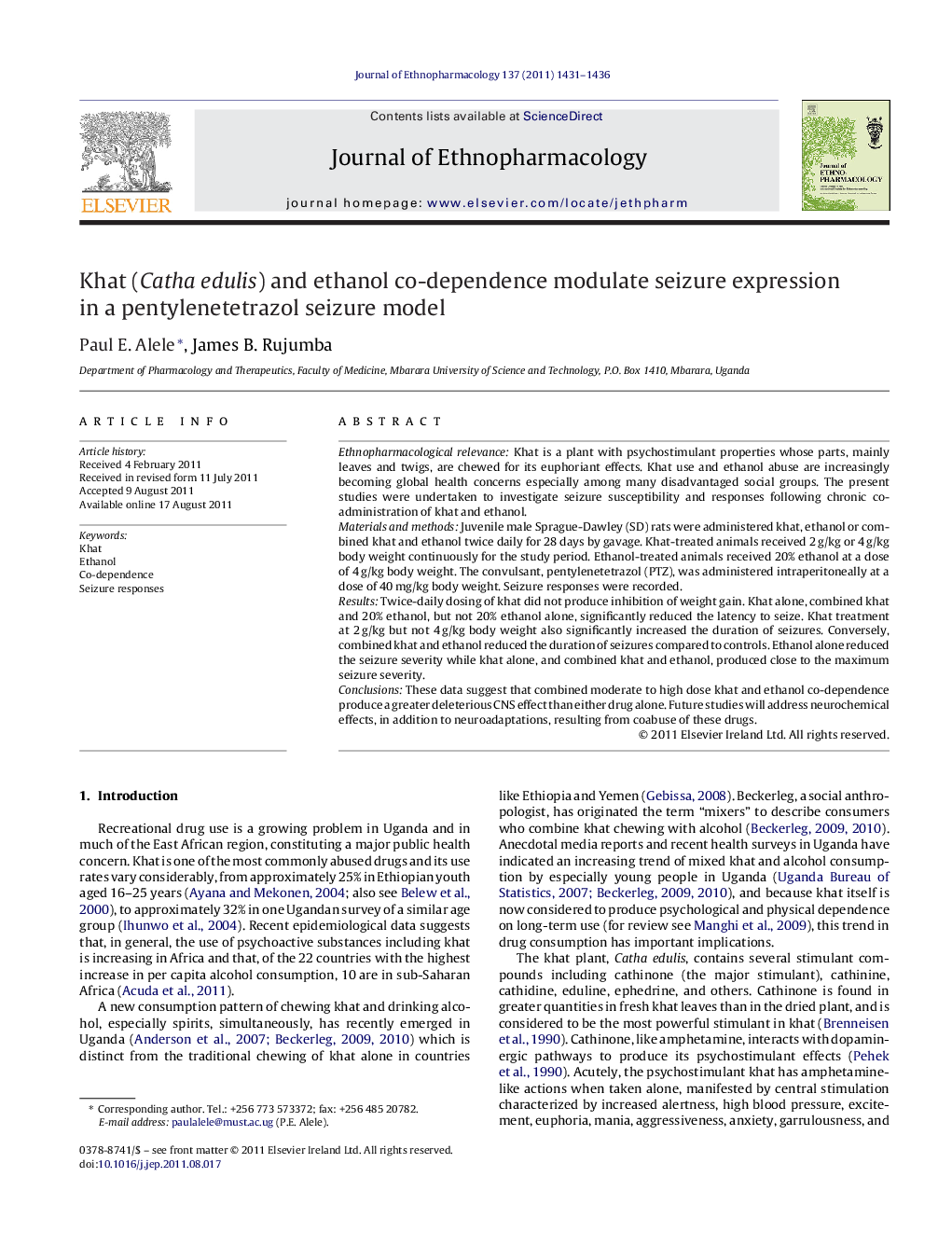| Article ID | Journal | Published Year | Pages | File Type |
|---|---|---|---|---|
| 5839450 | Journal of Ethnopharmacology | 2011 | 6 Pages |
Abstract
Ethnopharmacological relevanceKhat is a plant with psychostimulant properties whose parts, mainly leaves and twigs, are chewed for its euphoriant effects. Khat use and ethanol abuse are increasingly becoming global health concerns especially among many disadvantaged social groups. The present studies were undertaken to investigate seizure susceptibility and responses following chronic co-administration of khat and ethanol.Materials and methodsJuvenile male Sprague-Dawley (SD) rats were administered khat, ethanol or combined khat and ethanol twice daily for 28 days by gavage. Khat-treated animals received 2Â g/kg or 4Â g/kg body weight continuously for the study period. Ethanol-treated animals received 20% ethanol at a dose of 4Â g/kg body weight. The convulsant, pentylenetetrazol (PTZ), was administered intraperitoneally at a dose of 40Â mg/kg body weight. Seizure responses were recorded.ResultsTwice-daily dosing of khat did not produce inhibition of weight gain. Khat alone, combined khat and 20% ethanol, but not 20% ethanol alone, significantly reduced the latency to seize. Khat treatment at 2Â g/kg but not 4Â g/kg body weight also significantly increased the duration of seizures. Conversely, combined khat and ethanol reduced the duration of seizures compared to controls. Ethanol alone reduced the seizure severity while khat alone, and combined khat and ethanol, produced close to the maximum seizure severity.ConclusionsThese data suggest that combined moderate to high dose khat and ethanol co-dependence produce a greater deleterious CNS effect than either drug alone. Future studies will address neurochemical effects, in addition to neuroadaptations, resulting from coabuse of these drugs.
Related Topics
Health Sciences
Pharmacology, Toxicology and Pharmaceutical Science
Pharmacology
Authors
Paul E. Alele, James B. Rujumba,
